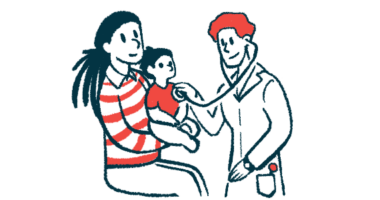How Can Family Members Help Those With Cold Agglutinin Disease?

Cold agglutinin disease (CAD) mainly strikes people who are elderly or middle-aged, and possibly already dealing with other health conditions. Here are ways family members can help and support a person recently diagnosed with CAD.
What is CAD?
CAD is a type of autoimmune hemolytic anemia, in which the immune system produces antibodies called cold agglutinins. These antibodies mistakenly attack red blood cells at low temperatures and cause them to burst, a process called hemolysis.
CAD may manifest as a primary disease, in which its underlying cause is unclear, or as a secondary disease caused by underlying medical issues such as infections, certain blood cancers, or other autoimmune diseases.
How can I help as a family member?
CAD can affect family life in many ways. The term “cold” mainly refers to the biological properties of the cold agglutinins, rather than to a clinical state. Still, most scientists agree that it makes sense to follow recommendations and protect against exposure to cold.
To help in managing CAD, you can also help keep track of how your loved one is coping, and help him or her in sharing that information at doctor visits.
Everyday life
Your loved one may need extra support, because the hemolytic anemia associated with CAD is known to cause fatigue. Between 80% and 99% of CAD patients also experience chronic joint pain, which can affect their ability to get around and fully function.
Family members can help to make sure the patient:
- wears a hat, scarf, and coat with snug cuffs during cold weather
- avoids cold rooms, and drinking cold water or other cold liquids
- turns down the air conditioning, or dresses warmly while in an air-conditioned space
- uses space heaters to keep room temperature at adequate levels
- warms up the car before driving in cold weather
- wears gloves or mittens when removing food from the refrigerator or freezer
Avoiding infection
Good hygiene and avoiding infections are critical for people with CAD. You can help your loved one here by ensuring they:
- avoid contact with sick people and crowded places
- eat well-cooked food, and avoid unhygienic eating places
- wash hands often
- brush and floss teeth regularly, and get regular dental checks to avoid infections
- Get vaccinations only in consultation with their doctor, after discussing the risks involved. In general, inoculation with live vaccines needs to be avoided.
Travel
Travel can be challenging for those with CAD because cold can trigger the immune system’s attack on red blood cells. A patient’s family would do well to check details on planned vacation destinations in advance, like daytime and nighttime temperatures and forecasts.
Remember that even warm, sunny places can be chilly at night.
Before you go, make sure your loved one packs appropriate clothing, plus any insurance documents and a treatment plan. Because CAD is a rare disease, you may have to help explain the condition to healthcare professionals if a medical situation arises.
Hospitalization
If your loved one is hospitalized for severe anemia or another medical complication, you can help to make sure that:
- conditions are not cold during hospitalization and, if need be, surgery
- healthcare professionals warm up intravenous solutions and blood products before use
- space heaters or blankets are available
- patients only drink warm water or other fluids
- they receive prompt treatment for fever and infections
Last updated: Sept. 17, 2020
***
Cold Agglutinin Disease News is strictly a news and information website about the disease. It does not provide medical advice, diagnosis, or treatment. This content is not intended to be a substitute for professional medical advice, diagnosis, or treatment. Always seek the advice of your physician or other qualified health provider with any questions you may have regarding a medical condition. Never disregard professional medical advice or delay seeking it because of something you have read on this website.






